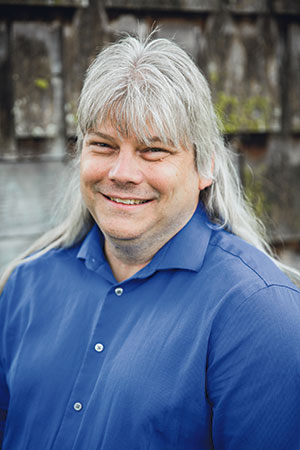Tim McDougald has always wanted to find a way to give back, specifically with the idea of a 5K in mind. He went to work to make that idea a reality after the annual Foodservice Consultants Society International conference, where attendees were challenged to tackle the issues of food waste and hunger. It became a chapter effort, and on October 5, the Pacific Northwest Chapter of FCSI The Americas will host its first-ever ERACE Hunger 5K run/walk event to raise money for HopeWorks. The nonprofit charity group assists low-income residents secure jobs, many of which are in the foodservice industry.
 Tim McDougald
Tim McDougald
Q: How did the planning process start?
A: I have a few friends who are 5K runners, and a local factory rep here also used to deal directly with 5K runs as an event coordinator. She was a huge help in terms of finding the right contacts for the timing systems and racing chips and everything that goes into a 5K. I drive a race car on weekends as a hobby, and the racetrack offered up the venue for the event, so that really helped put things in motion.
Q: How did you select HopeWorks?
A: We were looking for a charity in our area that directly helps with food shortage and hunger, and we found HopeWorks. They provide meals for people in need, and they also offer job training for people to get back on their feet. Many of those jobs are in the foodservice industry and in kitchens. Another reason we chose this charity is that we had a couple members actively working on a project with them at the time, so we had instant contacts. Our plan is to donate the proceeds of the event to HopeWorks this year and then pick a different charity next year.
Q: How much of the proceeds will go to HopeWorks?
A: We do need to set aside some of the proceeds to fund the event and pay for things like timing chips, course markers and runner bibs, but after that, 100 percent of the proceeds will go to HopeWorks. We are also going to have a food fair after the event for runners and the public, which will hopefully raise a little more money.
A few of our local manufacturer reps are setting up booths to cook some small plates like street tacos and sliders. It’s a great way for them to show off their equipment and what we do as an industry while feeding people at the same time. HopeWorks has a database of volunteers and some of them will be coming to help out as well.
Q: Why is it important for the industry to come together like this?
A: This industry is relationship-driven, more so than any other industry I have been a part of, and that’s where our strength lies. This event was a monumental task to put on, so it really takes the power of all of us. I think when we work together like this, it shows the strength of not only FCSI as an organization but what we can all do as an industry.
Q: What advice do you have for someone looking to lead a charitable endeavor?
A: My advice is to not give up and don’t let the negativity beat you down. It’s important to focus on the goal and stay after it.
We’re hoping that as a chapter, we can lay the groundwork for future years and for other chapters to plan similar events for charities by providing them with a road map of how to do it.



